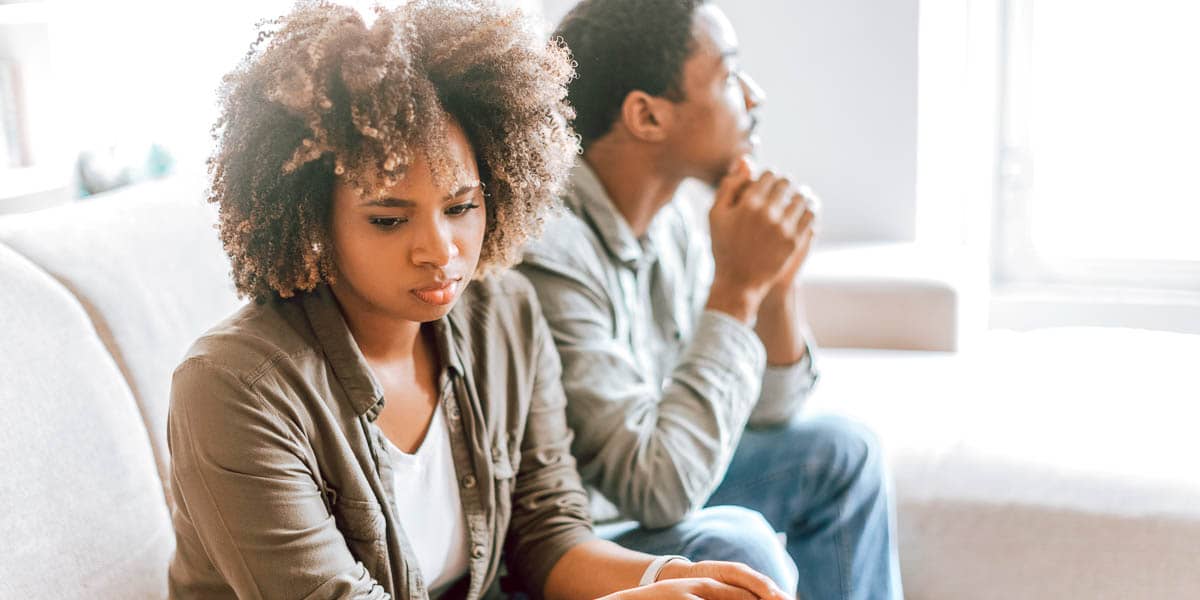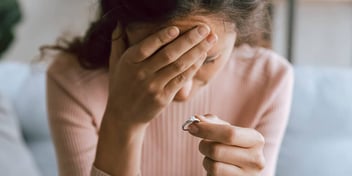How to Stop Falling for Emotionally Unavailable Partners

- Signs that your partner is emotionally unavailable
- Why some people fall for emotionally unavailable partners
- Changing your patterns
- Creating new boundaries
You yearn for connection and a stable relationship. And yet, over and over, emotionally unavailable people keep showing up in your life. Is it just bad luck, or could you be inadvertently attracted to unavailable people?
Signs of an emotionally unavailable partner
When someone can’t sustain an emotional connection with others, it can be problematic for their relationships.
Does this person sound familiar to you?
- They don’t like making plans too far in advance. And when they do, they blow you off at the last minute or just don’t show up, then make excuses.
- You always do the heavy emotional lifting. Unless you take the initiative, you rarely hear from them or see them.
- They want to keep things light and casual. They avoid doing or saying anything that suggests a committed relationship.
- They don’t do “feelings.” They have a difficult time empathizing with yours.
- They paid a lot of attention to you in the beginning. However, once you started getting closer, they did a total about-face.
- If you suggest these behaviors are a problem, they immediately become defensive.
If this sounds like your past romantic relationships or even a current romantic partner, you could have an emotionally unavailable person on your hands.
If you’ve known many of these people, you may wonder why these people keep showing up in your life. What are the causes of emotional unavailability, and is anything you can do about your experiences with it?
Why some people fall for emotionally unavailable partners
Emotionally unavailable people are everywhere, and falling for one could just be the luck of the draw. But if falling for emotionally unavailable love interests has become a pattern in your life, it may not be a coincidence.
Relationship patterns can follow belief systems that were created in childhood. If you keep attracting emotionally distant people into your life, you may be reflecting past relationship dynamics you experienced growing up.
Consider these possibilities:
- Were your parents unhealthy relationship role models? Was one parent emotionally distant or emotionally needy and suffocating? Was one of your parents always the primary giver, never getting anything in return?
- Were your parents physically or emotionally absent and always wrapped up in their own lives? Perhaps you never got your emotional needs met and grew up believing this was all you could expect from love.
- You may not believe you’re worthy of love and commitment. Subconsciously, you choose relationships that confirm that.
- You might not realize it, but you may come across as emotionally unavailable yourself. Do you have a fear of intimacy? This may attract people who don’t expect much commitment from you.
It could also be that these are the only people you’re finding. Unfortunately, dating sites and apps are full of emotionally unavailable people who are just “playing” or stringing others along, waiting for something better.
You might care deeply about an emotionally distant partner. Chances are that their unavailability stems from their own childhood. Their unavailability may be challenging to turn around without some concerted effort. And there’s no guarantee that they will be able to turn themselves around.
If you keep getting hurt by their distance, it may be time to take care of your own well-being and mental health. It may be time to change your own patterns and move on.
Changing your patterns
If this is a pattern in your life every time you get into a serious relationship? Is it possible that you could be part of the problem by going for this type of person? You may not even be aware that that’s what you’re doing.
If you recognize a pattern and your role in it, you can begin to distinguish emotionally healthy people from unhealthy ones. But first, it means that you will have to take a realistic view of why you may be attracting the very people who aren’t good for you.
Breaking the cycle of inviting emotionally unavailable people into your life requires some serious self-awareness and reflection.
- Understand how your personal history may have contributed to you being more comfortable with emotionally unavailable people.
- Recognize that you have some control over it. While you can’t change others, you also can’t be the victim of their abuse if you don’t keep inviting them in. Take ownership of your part, and promise yourself to take better care of your heart.
- Recognize red flags that have shown up in your relationships and how you may have ignored or made excuses for them. Consider these warning signs if you encounter them in future relationships.
- Try to understand why you maintain false hopes for a relationship well after it appears unlikely to happen.
- Ask yourself why you’re attracted to this “type.” Are you attracted to physical appearance without also considering their emotional maturity? Riding the wave of physical attraction may be how your pattern gets started and persists.
- Consider what you’re looking for. Are you looking for someone to be “in love” with or in a real relationship? Real relationships take time and mutual effort.
- Pay attention to people you know who are in emotionally healthy relationships. How do they interact with each other that’s different from the way you’ve experienced people in your own relationships?
- Practice accepting love and security. After chronically choosing emotionally unavailable partners, you may be rusty in recognizing how it feels to be emotionally cared for. Examine your own emotions closely.
- Practice loving and caring for yourself. If you don’t love yourself, it isn’t easy to believe that someone else can. Your own feelings matter.
- Get some professional help. If you’re not sure how to break harmful patterns, a good life coach or therapist can provide you with structure and guidance.
Creating new boundaries
Once you understand the dynamics of a pattern, you can begin to establish some clear boundaries and set expectations for your relationship. Be direct with the person you’re in the relationship with, but also understand that they might also be working out of their own unhealthy patterns. Before it begins to consume you, stop it in its tracks. You deserve better.
Good relationships require emotionally healthy partners. And that typically requires being brought up in an emotionally healthy environment. Give yourself a break. You or your partner may not have had good family role models. But improving a relationship will take both of you to recognize the unhealthy patterns and be willing to fix them.
If you’ve been married to someone who is emotionally unavailable and you can’t seem to turn it around, you may be considering divorce. If you’re unsure how to proceed, we might be able to help. At Hello Divorce, we provide legal and professional guidance and a spectrum of other resources designed to help you live your best life.
Suggested: Journaling to Cope with Divorce and Other Major Life Transitions

Ready to re-discover yourself with coaching or therapy?
Our FREE checklist can help you find the right fit.
Download our checklist of questions to ask a potential therapist or coach today.



